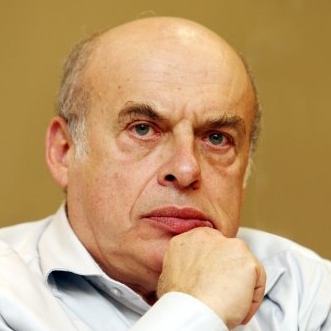
News

Sharansky wins Israel Prize before bowing out of Jewish Agency
JORDAN MOSHE
Having served as an MP and minister in several governments, Sharansky became the chairperson of the Jewish Agency for Israel in 2009. He will step down from this post in June.
Sharansky was honoured by Prime Minister Benjamin Netanyahu and former US president George W. Bush for his service to his country and his people earlier this month. And on Sunday, he was announced as a worthy recipient of this year’s prestigious Israel Prize by Education Minister Naftali Bennett.
Widely regarded as the state’s highest honour, the Israel Prize is presented annually on Israel Independence Day in a state ceremony.
“As meaningful as the Israel Prize is, it’s Israel that is the real prize,” said Sharansky. “We Jews of the Soviet Union got Israel as a prize. We were people without identity or freedom, and after 1967, we found a country that wanted to offer us a home. This prize goes to all those Jews who were part of the struggle to be a part of this country and for all that they did to help.”
As part of his announcement honouring Sharansky, Bennett spoke of the former Soviet refusenik’s life story as the “story of Israel”. Sharansky, however, insisted that the prize (and the story) was not only his, but belonged to his wife, Avital, as well.
“Avital and I felt strongly about being part of Israeli history and the struggle. It gave us both strength. We succeeded, the Jewish people succeeded. When Mr Bennett called me, I asked him why this prize is only being awarded to me. He immediately corrected himself and had Avital join the conversation, and said that our mutual struggle deserves to be recognised through this prize.“
Throughout his two terms of office at the Jewish Agency, which was the equivalent of nine years, Sharansky directed all his efforts towards strengthening Jewish identity, the centre of all the agency’s activity. “The agency was mainly about aliya, but the truth is that there is no division between the struggle for aliya, the struggle for Jewish education, the struggle against anti-Semitism, and the struggle for the strengthening of the world’s Jewish communities. These are all the same struggle. It’s one big project, and that is Jewish identity.”
His undertaking was not without difficulty, however. “The biggest challenge was making dialogue between the Israeli government and Jewish people more effective,” said Sharansky.
“The agency serves as a unique platform for this interaction, and we succeeded in creating constructive dialogue among different groups of the Jewish people. There were some unpleasant setbacks, of course, but we try to use our partnerships to bring much more knowledge to Israel about Jewish communities, and more knowledge to Jewish communities about Israel.
“During my term, I tried to make this process as effective as possible, and I hope that it will continue into the future.”
Although he will no longer be heading the agency, Sharansky will continue to be involved in similar work in positions of lay leadership. “I have been doing the same thing for 40 years – building bridges between Jews, those who live in Zion and those who don’t. I am going to continue devoting myself to this task.”
But before stepping down, he intends to put his remaining time at the agency to good use. As he explained: “We are broadening our activities and programme tracks in various countries. I hope that before I step down, we will open a new institute to assist shlichim and see them offered the best place to acquire the necessary skills and education their jobs require.”




